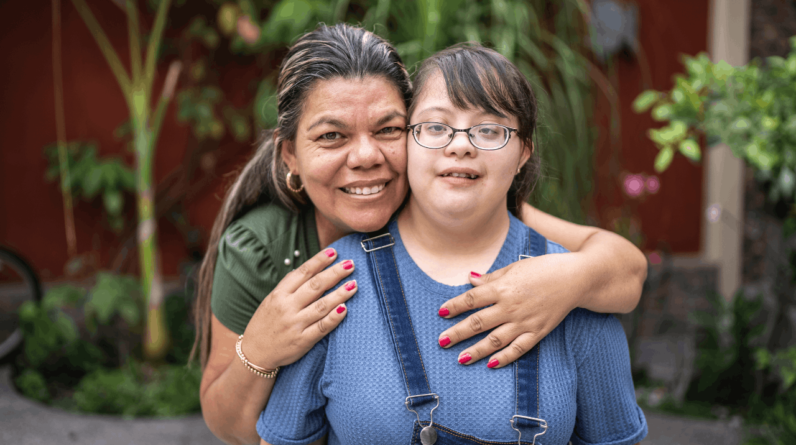
Family, romantic partner, friends, coworkers – we all have to juggle multiple relationships at the same time. Building harmonious relationships is a big part of our growth and happiness.
The fact that you can’t control other people’s thoughts or actions can cause a sense of helplessness.
But remember your power lies in how you choose to respond to other people.
Harness the power of boundaries.
Boundaries clarify what you allow into your life.
No matter what happens, where you go, or who you’re with, ultimately you have to rely on yourself.
Setting boundaries is about learning to value and trust yourself. It’s about reminding yourself that your needs and desires are important too.
Boundaries can be emotional, physical, sexual, or financial.
How do you know you need to set a boundary?
Here are a few signs that indicate you need healthy personal boundaries with people in your life:
- You find yourself sacrificing your needs to please others
- You feel like people take advantage of you
- You live with a constant sense of guilt and fear
- You are scared of being abandoned
- You are at the receiving end of mind games
- Every conversation feels like a confrontation
When you remain at the mercy of others for too long, you forget what you really need. You lose your sense of self.
Whether it’s due to social anxiety, past experiences, relationships, or the way you handle difficult situations – a variety of factors could contribute to your beliefs about what you deserve or don’t deserve in life.
Attachment to unhealthy beliefs impacts our ability to set and reinforce healthy boundaries.
Taking charge of your own choices.
You can only experience life through your own unique perspective.
How can you live a fulfilling life if you try to make decisions based on the actions or opinions of other people?
Take charge of your choices.
Be clear about what kind of behavior you won’t accept.
When you find yourself in situations that make you uncomfortable, take a few moments to reflect on why you feel that way. Pay attention to your emotional limits.
Say something. Don’t let anyone take away your power to respond.
Consider your own inner peace.
Many of us try to avoid conflict to keep the peace.
What about your inner peace?
Not saying anything might save you from a few minutes of confrontation, but it may lead to inner turmoil that could haunt you for years.
It will reflect in everything you do.
Your self-esteem will take a nose dive. You will find it more and more difficult to stand up yourself. People will continue to step over you.
Your boundaries are based on your own values and needs. Other people may not fully understand or even like them, but they have to respect them.
Family Conflict Resolution: Understanding How to Keep Harmony at Home→
Boundaries help you take back your power.
Boundaries help you acknowledge your power.
When you set a boundary with someone, use empowering language and be clear on the consequences if the boundaries are not honored.
Your tone should be firm.
If you let someone disregard your boundaries without any consequences, they will continue to push your boundaries.
Some people will react positively and respect your boundaries. And some may get offended, and defensive.
If they respond with hostility, you have every right to walk away. Avoid engaging with their drama. Their reaction to your boundaries will show you how much value they place on your relationship.
Those who truly want the best for you will understand.
With well-defined boundaries, you will feel confident in yourself and your decisions and your relationships will flourish.
Motivational Message Throwback – June 2023
Every day, we make countless judgments about others without even realizing it. We judge people based on their appearance, personality, and life choices.
Social media has made it easier to judge and form an opinion about others.
Our judgments aren’t accurate, since we make assumptions based on incomplete information.
Most of the time, you don’t really know what’s actually happening in other people’s lives.
First impressions can be deceiving.
We cannot understand a person’s situation just from one encounter with them. But this shouldn’t stop you from being empathetic and compassionate.
Life isn’t always black and white. There are many uncontrollable factors that contribute to how our lives turn out and why people act the way they do.
A judgment is simply an opinion you form based on your thoughts, beliefs, and social conditioning. They are not the truth.
Judgmental thoughts are often overly negative and generalized. They lead to bias and a distorted outlook on life and relationships. When we believe our judgmental thoughts, we prevent ourselves from learning about new ways of seeing the world. We become dismissive of other people.
Since we are hardwired for negativity, being negative is easier. You can’t stop those judgmental thoughts from coming. But you can release them without believing them.
Pause and question your assumptions. Develop a greater awareness of your thoughts.
Try to gain an understanding of the situation in the right context.
Let go of thoughts about what “should” be.
Do you think you are too judgmental? Read this next: 5 Ways to Stop Being so Judgemental & Why it’s Important
Also, it may not be pleasant to admit, but often we tend to judge others in an attempt to feel good about ourselves. Those judgments stem from our own insecurities. We try to put other people down to boost our self-esteem.
It goes without saying that the habit of judging people can be very damaging to ourselves and other people.
Throughout the month of June, try to reframe your thoughts each time you find yourself making negative judgments about others.
Try to remain in a curious state when you catch yourself judging someone who doesn’t share your beliefs.
You don’t have to agree with them, but simply keeping an open attitude will help you to understand their perspective and respond to them from a place of compassion.
Avoid fixating on your view of what’s “right” and “wrong”.
Embrace curiosity.
Photo by RDNE Stock project








